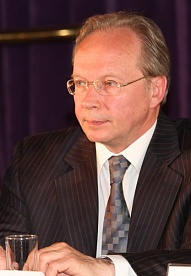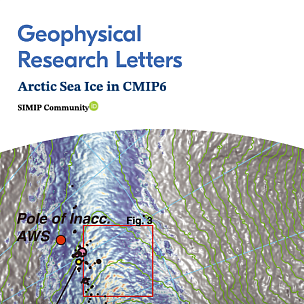Tourism is one of the sectors most heavily affected by COVID-19. Experts believe that the industry will undergo significant restructuring, with travel abroad giving way to domestic tourism, and trips to places where people dont gather in large numbers becoming more popular. According to Managing Director of the 21st Century Arctic International Union Valery Korovkin, current circumstances offer a chance to develop a new tourist destination. It is an area that has been discussed for a long time, but which little is currently being done to promote. Arctic tourism is a potentially highly profitable business from the perspective of federal and regional budgets, and has long been successfully exploited by other coastal nations.

Today, opportunities in the region are mostly connected to the energy projects being rolled out there. These projects are clearly important, but have almost no bearing on the life of areas far removed from the industrial clusters, and it is worth repeating that raw materials are a habit we are trying to kick.
What kinds of non-oil exports can be developed in these sparsely populated areas spanning thousands of square kilometres and with an unsuitable climate for permanent residence? The Arctic states have a clear answer, and that is ecological tourism. The segment was seeing rapid growth in popularity before the coronavirus, and I am sure that this will continue once the pandemic is over. For comparison, ecotourism represented 10% of global tourism in 2019 according to the World Tourism Organization, while the equivalent figure for Russia was 2%.
The Russian Arctic is a region that has mostly been preserved in its natural state, something which is especially attractive to travellers. Transport inaccessibility and poor infrastructure prevent the development of mass tourism here, but expedition cruises are quite possible, as confirmed by the experience of our northern neighbours. Whats more, trips of this type are considered some of the costliest in the world, meaning that profit margins can be huge and significant revenues can be directed into regional budgets. Given the high costs of polar tourism, the economic basis for such activities could be sound enough to provide for the further development of related infrastructure.
The potential territory for sea expedition cruises in the Russian Arctic spans Russias entire northern coast, which is home to several specially protected natural areas. Because of ice retreat caused by climate change, maritime navigation is now viable from July to October. The importance of the fact that there are already tourist flows in place which could potentially be directed into the Russian Arctic from the west and the east cannot be understated.
Up to a quarter of tourists on the NorwaySvalbard route, for example, would like to visit the islands of Russias Franz Josef Land archipelago, according to a survey conducted by industry experts. A second route is Iceland, while a third passes through the Bering Sea. The Arctic boom has so far passed Russia by, with just 3,938 people visiting the regions of the Russian Arctic on cruise ships in 2018.
There are hardly any issues concerning ecological damage, as there is practically no human contact with the fragile northern ecosystem. During these trips, the ship usually arrives at a predetermined destination, where the passengers are lowered down to the shore on boats, taking short walks along a strictly defined route.
Another significant advantage in organizing trips of this kind is the high degree of security.
The main obstacle to developing sea cruise tourism is, as you might have guessed, the regulatory environment in Russia. The special status of the Russian Arctic territories and Far Eastern Federal District, which are designated as border zones, means that all approvals move very slowly, as they require a huge number of participants.
In January this year, Presidential Plenipotentiary Envoy to the Far Eastern Federal District Yury Trutnev held a meeting on the development of tourism in the Arctic for the first time. Representatives of the Ministry of Defence, the Ministry for the Development of the Russian Far East and Arctic, the Federal Agency for Tourism and other interested parties were present at the meeting. The event seemingly got the ball rolling, and the following meeting was scheduled for March, but the pandemic got in the way of things.
In the next article I will discuss the concrete steps the government intends to take to develop Arctic tourism, the locations where the main cruise liner stops are planned, and how all of this will affect life in the coastal territories.
Information
The 21st Century Arctic International Union of Tourism Operators and Marine Protected Areas of the Arctic and the Far East is a noncommercial organization, whose members include six specially protected natural areas. The organization is a member of the Federal Agency for Tourism working group on developing a roadmap for the development of cruise tourism in the Russian Arctic under the auspices of the Ministry of Economic Development. It is also a member of the working group of the Russian Geographical Society and the Federal Agency for Tourism On promoting the creation of regional tourist clusters and promoting tourism in the Russian Arctic to domestic and international tourism markets. It is a regular participant at major events devoted to the Arctic and Arctic development, including SPIEF, the International Arctic Forum, and Arctic Days in Moscow. 21st Century Arctic works closely with the administrations of Arkhangelsk and Murmansk regions, as well as other coastal federal subjects.






